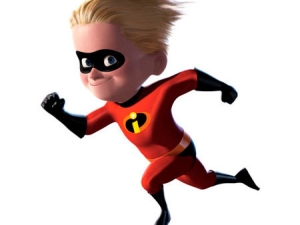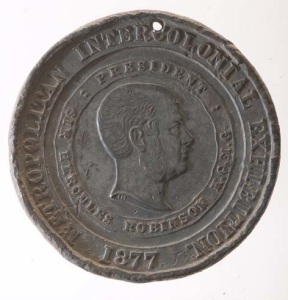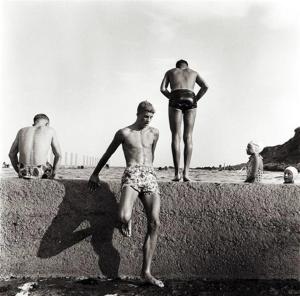Tags
aristocratic names, created names, english names, famous namesakes, fictional namesakes, germanic names, name history, name meaning, name popularity, Scottish names, surname names, Twilight names, UK name popularity, unisex names, US name popularity, vintage names
Famous Namesake
Last week it was the 122nd birthday of Esme Fink, born on September 15 1894, and known as “Molly” from her middle name, Mary. She was an attractive blue-eyed blonde with a charming, fun-loving personality, and came from a respectable Melbourne family who had fallen on hard times, so her mother was desperate for Esme to meet an eligible bachelor as soon as possible.
While staying in Sydney, Esme caught the eye of of a middle aged Indian rajah who was there for the races and had become part of Sydney’s elite. His name was Martanda Bhairava Tondaiman, and he was the ruler of the princely state of Pudukkottai in British India, today in southern India. Martanda was smitten with Esme, and after a few months proposed marriage.
The happy couple wed almost immediately, and after being sneered at in the Australian press, travelled to India. Right from the start the British authorities were hostile to Martanda’s choice of bride. They had already warned him that a “mixed marriage” would not be formally recognised, and King George V decided that Molly Fink was a dreadful name. The final straw came when Esme became pregnant, and a poisoning attempt was made on her.
Esme and Martanda returned to Australia, where their son Martanda Sydney was born; Martanda became known in racing circles, and Esme as a socialite. They left Australia for London in order to demand recognition of their marriage, but when it became obvious their son would never be acknowledged, Martanda abdicated in exchange for substantial financial compensation.
Esme and Martanda settled in Cannes, where Esme’s friends included the photographer Cecil Beaton, and hostess Elsa Maxwell. Esme loved fashion, and was the first person to ever buy a Schiaparelli evening dress; she known for her extravagance, and eccentricities such as taking a pet tortoise for walkies while dressed to kill.
After her husband’s unexpected death, the Aga Khan proposed marriage to her, but she turned him down in order to live the high life independently. When World War II broke out she travelled to New York with Cecil Beaton and Anita Loos, and with her money frozen because of the war, worked illegally in a department store to make ends meet, while raising funds for Australian and Canadian servicemen.
She was estranged from her son after he was imprisoned for jewel theft, and as her funds dwindled became something of a recluse, taking comfort in alcohol and her Pekingese dogs. She died in 1967, leaving her extensive wardrobe to the Fashion Museum in Bath.
Name Information
Esme is the Anglicised form of Esmé, derived from the Old French word esmer, meaning “esteem, respect, love”, and pronounced EZ-may. It was first given to Esmé Stewart 1st Duke of Lennox, a cousin of King James VII, born in 1542; his mother was French. The name was used for eldest sons in his family for a few generations (the chain was broken after one of the Esmés died young, after which the name wasn’t used again by the family).
Esmé as a boy’s name never really took off, even in Scotland, and by the 19th century Esme was becoming better known as an English name given to girls, although still in some use for boys by the aristocracy, especially those with ties to Scotland.
The reason for its gender switch could have been because it sounds like a cross between Esther and May, or perhaps it became conflated with Ismay, a medieval English girl’s name thought to be derived from the Germanic name Ismagin, meaning “iron strength”. It is better known as a surname (the owner of the doomed Titanic was J. Bruce Ismay), and the surname Esmay is a variant. Ismay and Esme both came into use around the same time in the modern era, and at one time Ismay was usually given to boys – both names became more commonly feminine in the 19th century.
Another possible blow to the name Esmé remaining masculine was the scandalous 1894 novel The Green Carnation, published anonymously but written by Robert Hichens. The lead characters in the novel were Esmé Amarinth and Lord Reginald Hastings, closely modelled on real life lovers Oscar Wilde and Lord Alfred Douglas. An instant success in both Britain and the US, its readers were shocked and titillated, and a reviewer described it as “impudent … bold … delicious”.
The book had to be withdrawn because it depicted homosexuality, but the damage was done and the novel set the stage for Oscar Wilde’s public disgrace and downfall. The Green Carnation was one of the works used by the prosecution in the case against Oscar Wilde for gross indecency, which saw him sentenced to two years hard labour. Use of the name Esme for boys became extremely rare after the late 19th century, and I can’t help wondering if the book helped cement the idea that the name was not only feminine, but effeminate on a man.
The name Esme has been used several times in literature, quite apart from this scandalising roman-à-clef. J.D. Salinger wrote a short story called For Esmé – with Love and Squalor; Esmé is an orphaned English teenager who befriends an American soldier. The name is referenced in Lemony Snicket’s A Series of Unfortunate Events, which has a nasty piece of work named Esmé Squalor.
Another villainess is mutant Esme Cuckoo in Marvel’s X-Men series, while powerful witch Esmerelda “Esme” Weatherwax in Terry Pratchett’s Discworld fantasy series is a force for good. In Saki’s darkly comic 1911 short story Esmé, the title character is an animal and the person who bestows the name does not know its sex, so chooses Esmé as suitable for either male or female. Knowing Saki, it’s hard not to wonder if The Green Carnation helped inspire the choice of name.
More recently the name has featured in Stephenie Meyer’s Twilight series, as Esme Cullen is the gentle, caring vampire den mother. Her name is half the basis for her granddaughter’s name, Renesmee.
Esme was #139 in the 1900s, and peaked in the 1910s at #120 – the same period Esme Fink was in the papers as a society beauty and putative rani. Esme left the charts in the 1950s. Since then it has made a mild come-back, and is around the 600s.
In the UK Esme did not make the Top 200 during the 19th century. However, it has been rising steadily since the late 1990s, and joined the Top 100 in 2008. It is currently #38 and still going strong. One influence on the name may be the British model, DJ and actress Esmé Bianco, who played Ros in Game of Thrones. The name is popular in Scotland, at #57.
Esme doesn’t have a strong history of use in the US, and only joined the Top 1000 in 2010, two years after the first Twilight movie. Numbers have risen, and it is currently #682.
For many years in Australia this name was associated with gossipy old Esme Watson from A Country Practice, but it has been given a new lease of life. It’s a vintage name that feels contemporary and stylish, and by now its masculine origins are long past, although not forgotten. It’s an artistic name with plenty of literary clout, and popular culture has brought it new admirers.
You can spell it Esmé if your state or territory birth registry will allow it (some won’t), but Esme looks neat and pretty, and by now I think nearly everyone knows how to pronounce the name without the aid of an accent. Adding an extra E to spell it Esmée in an attempt to feminise or Frenchify it is redundant, as by now the name already is feminine, and it’s not a French name but a British one.
POLL RESULTS
The name Esme received an approval rating of 82%. People saw the name Esme as intelligent and artistic (20%), pretty or beautiful (20%), classy and elegant (17%), and cute on a little girl but sophisticated on a grown woman (15%). However, 6% saw it as ugly and frumpy.
(Photo is of Esme “Molly” Fink, taken by Cecil Beaton)










